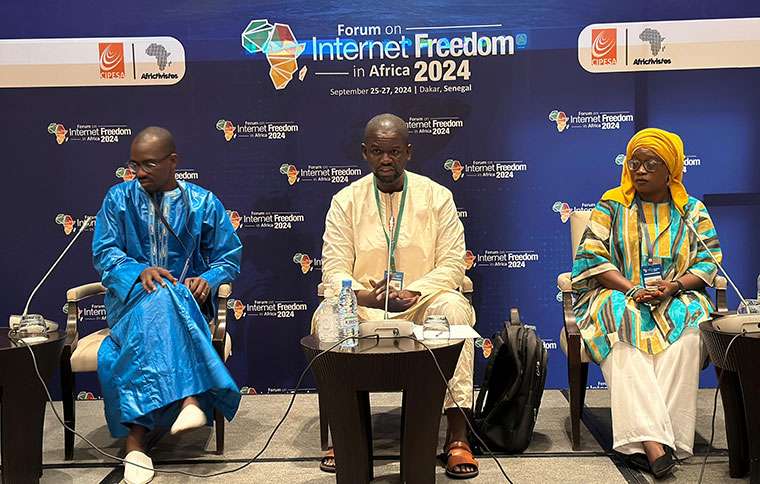Update |
Technology was supposed to be a great equalizer in Africa’s democratic journey, but as the “State of Internet Freedom in Africa 2024” report reveals, technology has instead become a tool for authoritarian control.
As internet shutdowns, disinformation, and the digital divide grow, the hope for transparent elections continues to dim away, writes FRANK KISAKYE.
Technologies initially seen as tools to empower Africa’s youth and dismantle authoritarian regimes have, paradoxically, become instruments of digital repression. Rather than facilitating democratic transitions, politicians are exploiting these innovations for misinformation, censorship and disinformation.
Hopes were high as mobile phone usage and internet access rapidly expanded across the continent, reaching 43 per cent mobile penetration with 489 million unique subscribers and 25 per cent internet penetration with 287 million mobile internet users. These advances were expected to modernize electoral processes through biometric voter registration, digital verification methods, and faster result transmission.
However, the “State of Internet Freedom in Africa 2024” report by the Collaboration on International ICT Policy for East and Southern Africa (CIPESA) reveals a darker reality. Rather than promoting transparency, governments have turned to technology to undermine elections, suppress dissent and manipulate outcomes.

Launched in Dakar, Senegal, at the 2024 Forum on Internet Freedom in Africa (FIFAfrica) which was co-hosted by CIPESA and AfricTivistes, the report emphasizes how digital repression has become a key tool for authoritarian regimes.
Cheikh Fall, president of AfricTivistes, urged the continent to develop indigenous digital frameworks, saying, “Africa’s greatest challenge today is that it is experiencing the effects of all three industrial revolutions that shaped the world. We must create homegrown technologies and frameworks that address the continent’s unique needs and aspirations.”
INTERNET SHUTDOWNS
The report highlights countries such as Chad, Gabon, Uganda, and Zimbabwe, where internet disruptions and shutdowns have been used during elections and protests to stifle political opposition and control information. Since 2022, over 18 election-related internet disruptions have been recorded across Africa, a clear sign of growing digital authoritarianism. Rather than embracing transparency, these regimes are using technology to erode democratic governance.
Internet censorship, surveillance, and repressive laws are also key tactics used to weaken civic participation. Countries like Ethiopia, Mozambique, and Mali have engaged in targeted surveillance of political opponents and human rights defenders. The result is an environment where citizens fear participating in democratic processes, fearing reprisal and distrusting government institutions.

For example, Uganda has blocked Facebook since 2021 after President Yoweri Museveni accused the platform of siding with the opposition by deactivating accounts linked to his ruling National Resistance Movement (NRM). Facebook accused NRM of creating ‘fake accounts’ to manipulate the electoral process. This growing trend toward digital suppression makes it increasingly difficult for citizens to engage politically.
In 2023 alone, African governments imposed 283 internet shutdowns in 39 countries – a 41 per cent increase from 201 shutdowns in 2022. Ten of these shutdowns specifically targeted social media platforms like Facebook and X (formerly Twitter), which were once seen as tools for youth empowerment.
Instead, these platforms have become victims of repression, preventing young people from using them to effect political change. Despite 2024 being a pivotal year for African democracy, with over 20 countries heading to the polls, authoritarian regimes are doubling down on their use of technology to suppress opposition and manipulate electoral outcomes. This year could further erode trust in electoral transparency as governments increasingly seize control of internet governance.
Internet shutdowns have far-reaching consequences beyond politics. In conflict zones like Gaza, Myanmar, and Sudan, shutdowns disrupt essential services, including humanitarian aid. African countries are no exception. For instance, Algeria lost an estimated $70.4 million due to internet disruptions between 2019 and 2024.
Ugandan advocate Michael Aboneka warns that the continent may see even more internet shutdowns as regimes aim to control narratives during elections and protests. The economic and social costs are profound – undermining public trust in election outcomes and exacerbating political tensions.
Disinformation has also emerged as a key tactic to manipulate African elections. The CIPESA report highlights the increasing use of artificial intelligence (AI) to create fake content that misleads voters. Politicians are weaponizing AI to discredit electoral bodies and deepen political polarization.
In Uganda, for example, AI-generated disinformation has fueled the power struggles between prominent figures such as General Muhoozi Kainerugaba and President Museveni’s son-in-law, Odrek Rwabwogo. This not only confuses voters but also distorts the political landscape, making it difficult for citizens to make informed choices.
The proliferation of disinformation diminishes trust in democratic institutions, and AI’s ability to amplify these false narratives poses a growing challenge to fair elections.
While technology has transformed some aspects of African elections, the digital divide remains a significant barrier. High data costs, poor infrastructure, and limited digital literacy exclude large portions of the population, particularly rural communities, women, and people with disabilities.
Countries like Zimbabwe, South Sudan, and the Central African Republic have some of the most expensive mobile data prices globally, preventing many citizens from accessing crucial information and participating in online civic spaces. This deepens political inequalities and prevents marginalized groups from fully engaging in the democratic process.
This article was first published on the Observer website on October 09, 2024.
Read full report on the State of Internet Freedom in Africa (SIFA) 2024.

